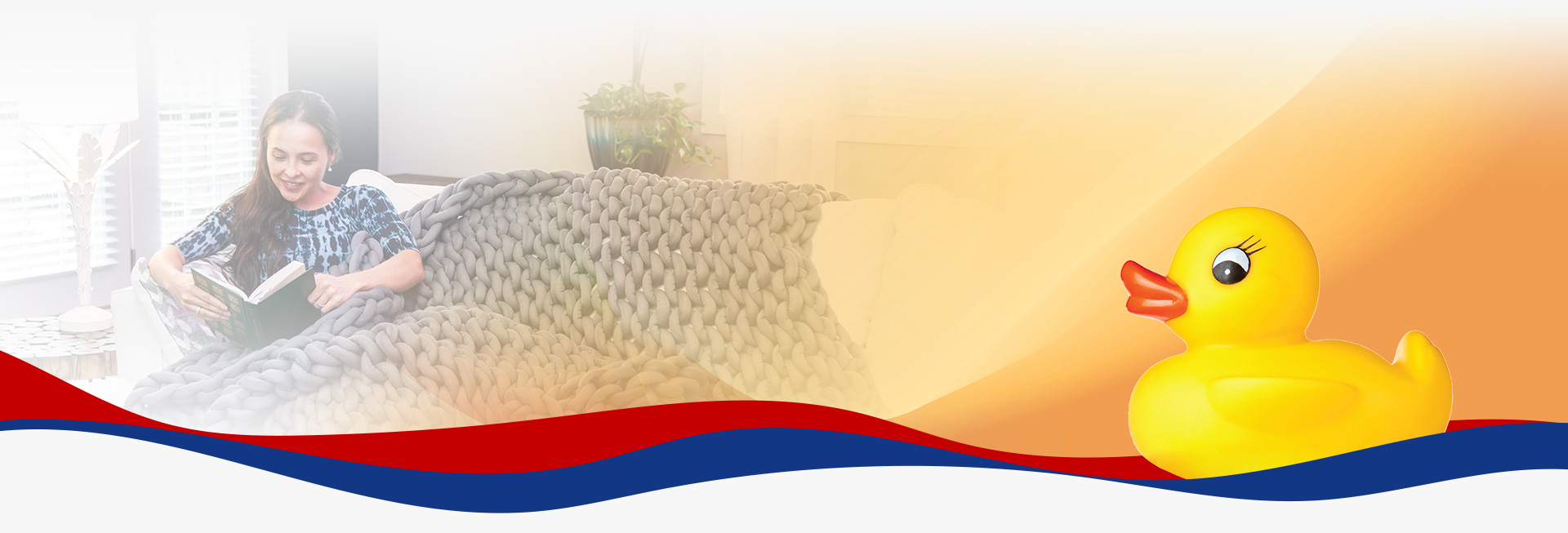Sleep is one of the most studied and still misunderstood aspects of human biology. We know the importance of sleep for memory, performance, and health, but there’s still a lot that we are still learning. We want to help give you the gift of great sleep and to do that we wanted to discuss the importance of having quality HVAC systems to set yourself up for sleeping success.
Sleep Temperature
Your heater and air conditioner are machines designed with the express purpose of making your home a comfortable temperature. The importance of this doesn’t suddenly stop once you fall asleep! Rather it can be even more important to regulate the room’s temperature while you sleep! Multiple studies have shown the value of chill temperatures for ideal sleep.
The number that seems to come up the most in these studies is about 68 degrees. This is likely a bit colder than you typically would have your thermostat set to normally during the day, so be sure to either set a schedule for your thermostat or set it manually before bed.
Why 68 Degrees?
While we aren’t scientists, there are a lot of potential reasons that it’s important to have a cold room to achieve ideal sleep. One is that the body naturally lowers its temperature during sleep. It’s helpful to give your body a boost or head start on lowering its temperature by cooling the room. Additionally, our sleep cycles are intrinsically tied to the cycle of day and night. This is why the best sleep is achieved in a dark room. The same is true for temperature. Our brains are programmed to sleep during the cold nights.
Indoor Air Quality and Sleep
It is more than just temperature that impacts the quality of sleep. We know that anything from the stiffness of the mattress to having a consistent bedtime can impact how well your sleep goes. There is another major aspect of sleep impacted by your HVAC systems—indoor air quality.
Indoor air quality is impacted by several different factors. Ventilation, humidity, and the level of pollutants all play a role in indoor air quality. If your home suffers in any of these areas, your sleep and overall comfort will be impacted. Let’s start by explaining why ventilation is so important.
Ventilation
We instinctively understand when a room feels stuffy. When a room suffers from poor ventilation, carbon dioxide can build up and the room will be less oxygenated. Studies have shown that high carbon dioxide presence simulating a poorly ventilated room will lead to poor sleep. There are likely a variety of reasons for this, but consider that your breathing slows during sleep, so it’s essential that each breath gives you great oxygen to breathe. You can help your HVAC unit ventilate by cracking a window and by avoiding closing doors for long periods of time.
Humidity
Poor humidity can have a number of effects on your home. If you want a quick shorthand, keep your humidity levels between 35% and 45%. Low humidity can make you more susceptible to allergens by drying out your nose and throat. Dry air is uncomfortable to be in and could make it more difficult to relax before sleep.
Humid air can be just as bad. If your home’s humidity stays above 50% consistently, mold can form in your home. Mold spores can be some of the worst air pollutants out there. Keep your humidity levels steady by ventilating your home well. If you need to increase humidity levels you can air-dry clothes on a rack or cook. If you need to take humidity out of the air, you can run your HVAC units or consider placing houseplants outdoors or near an open window for adequate ventilation since plants add moisture to the air.
Air Pollutants
Air pollutants are perhaps the simplest to deal with. Just make sure you are changing your air filters out once a month and dusting and vacuuming regularly. These simple things can make a huge difference in reducing the level of air pollutants in your home.
For your air conditioning installations, repairs, and maintenance, contact Sinclair Heating, Cooling, Plumbing, Inc at (806) 454-9332. We are here to help keep both you and your property cool for the summer.

.2101110229550.png)